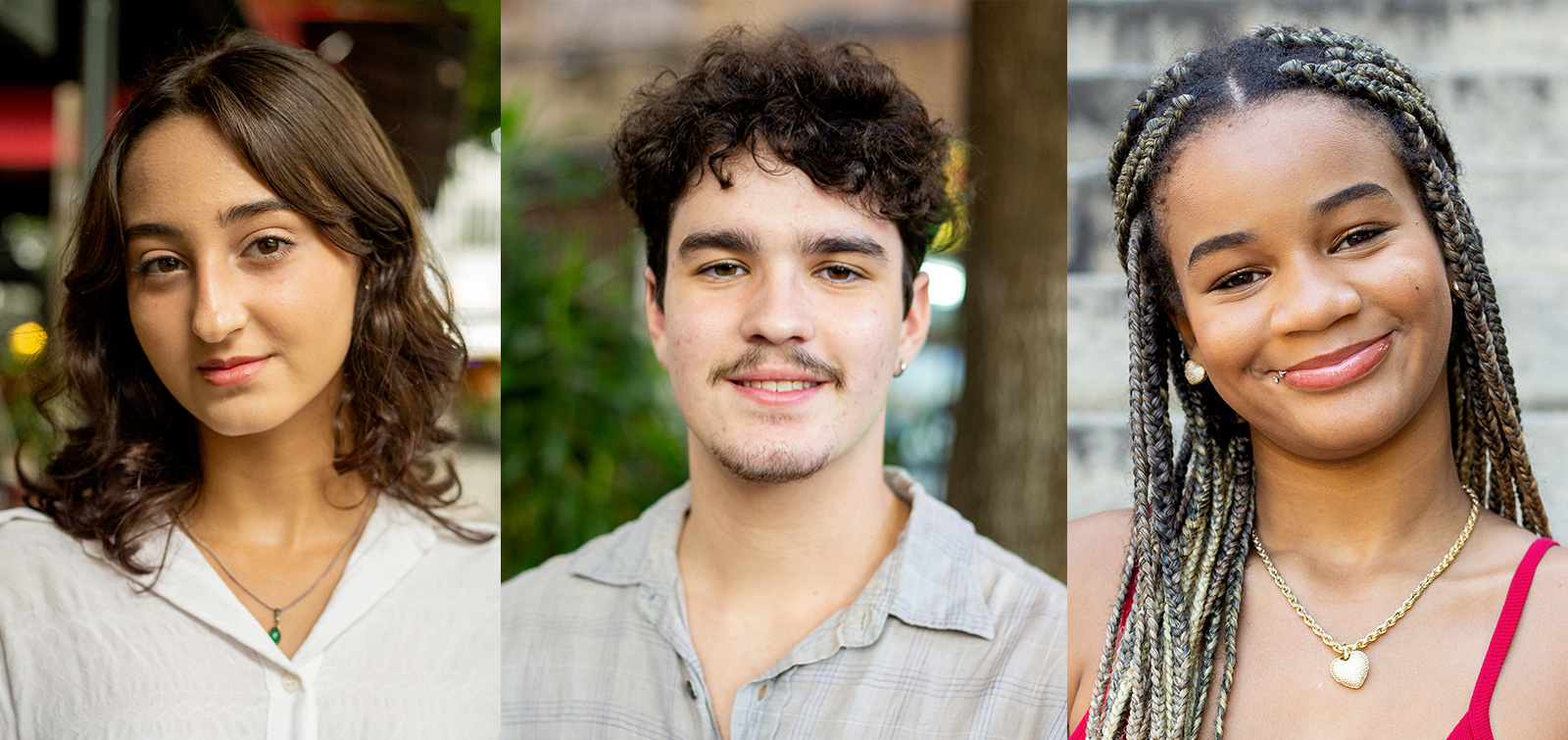Brazilian youth share stories of combating stigma, self-expression, and creating safe spaces in schools

In this blog, you’ll meet some of the inspiring young people we work with. Through their voices and stories, they show how youth leadership can drive meaningful change and help build a future where mental health care is accessible for all.
Giulia
“It’s always adults who define everything in our lives. Schools are designed by adults, many times not directly thinking about our needs. So, I believe representation is crucial. Young people talking about young people is a matter of understanding. We need to be given space to voice our real needs instead of having them dictated to us — because if they are simply dictated, they might not actually be met. Having a voice in schools and throughout adolescence, in any social setting, is extremely important to make us feel valued and that our needs truly matter.
I think one of the biggest challenges for young people today is the issue of identity. Identifying with a group, a space, or with people is a topic that, in my reality and from what I observe, is very relevant. I see this a lot in my school environment, in my social life, and in my family, too. Being able to identify with something and say, ‘I am part of this’ or ‘I relate to this,’ is a challenge.”

Giulia is an 18-year-old who lives in Rio de Janeiro. She has always been a very curious person who loves science, nature, arts, and people. She believes knowledge is the foundation of her life. Here’s a quote she enjoys and would like to share: "In life, there is nothing to fear, only to understand." (Marie Curie, Polish scientist)
João Pedro Campello
“I think one of the biggest difficulties teenagers suffer is the transition to adulthood. Speaking about Brazil, depending on your social and economic background, you are either barely prepared, or skipping important stages of youth on the way to adulthood. You have to be very mature too soon.
One thing my school has, which not all schools do, and which I think is very beneficial, is open communication between the administration and students. Having this safe space, like the Student Council at my school, allows students to express themselves. In schools where this doesn’t exist, I think it makes things even harder. So, this is one of the most important aspects — having open dialogue between school leadership and students.”

João Pedro Campello is an 18-year-old from Brazil, who plays guitar in a rock band while studying Journalism at the Federal University of Rio de Janeiro.
Letícia Vitória
“I think what makes mental health so difficult for young people today is mainly the constant pressure we face, especially academic pressure. You always have to get good grades and focus on everything to secure a good career, but people forget that young people are already under a lot of pressure. You’re pressured at home, at school, and for some young people, also at work. I think a way to improve this would be to create more safe spaces. And even though school can sometimes be a toxic environment, it can also be a gateway to creating these safe spaces for young people. A place where we can come in, talk about what’s going on, be heard, and help other people, too.”

Letícia Vitória is a 15-year-old from the Complexo do Alemão. She practices classical ballet and also enjoys contemporary dance. In her free time, she likes to read books, especially ones about investigations or zombies.
The Child and Adolescent Mental Health initiative (CAMHI) is working in Brazil, in collaboration with local partners, to help children and adolescents access evidence-based, quality mental health support through collaborative partnerships, youth engagement, psychosocial support program for school community professionals, and culturally adapted expert training.
Our Voices
September 8, 2025Do you have a story
or experience about
mental health that
could inspire others?
We’d love to hear your voice!
Share your story with us for a chance to be featured and help others feel less alone.


